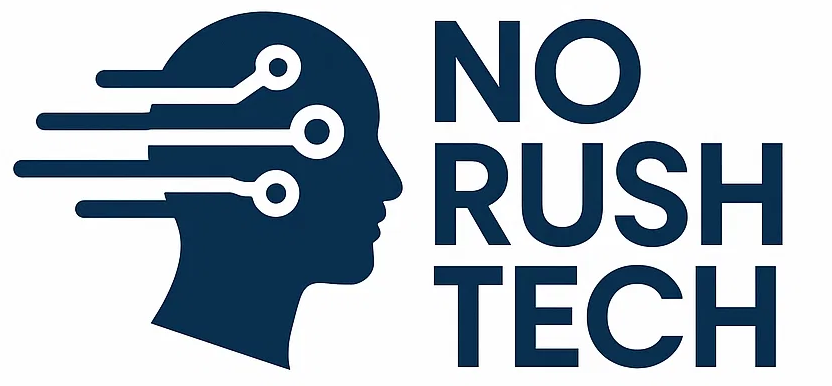Executives, Boards & Leadership Teams
"We help you lead with clarity—by turning AI trends into smart, strategic decisions."
Recommended Topics
Each topic below can be delivered as a standalone module or combined into a multi‑session programme. Modules include a concise briefing, interactive exercises and practical take‑aways.
Generative AI Essentials
Introduces large language models, image and video generators, and other generative techniques. Covers how models are trained, what they can and cannot do, how to spot hallucinations, and why outputs must be verified. Helps executives understand both the hype and the limitations of the technology.
Directors need a baseline understanding of generative AI’s opportunities, limitations and risks before they can contribute value in board discussions.
Industry Impact & Competitive Landscape
Examines how generative AI is reshaping specific sectors (health care, energy, finance, manufacturing, retail). Includes competitor case studies and discussion on where value is being created versus where experiments remain proofs of concept.
Boards should ask about the implications of generative AI for their industry and what competitors are doing.
AI Strategy & Governance
Guides leaders through defining why, where and how to deploy AI, selecting and prioritising use cases, and measuring value. Introduces success metrics, ROI re‑thinking and change‑management planning. Discusses establishing an AI committee, assigning accountability and creating approval processes.
AI adoption needs to be a board‑level priority and must be guided by strategy and clear objectives
Legal, Regulatory & Ethical Considerations
Reviews emerging AI laws, privacy and data‑protection rules, intellectual‑property issues and sector‑specific regulations. Discusses responsible AI principles: fairness, transparency, human oversight and alignment with organisational values.
Directors should ensure guidelines for privacy, security, transparency and fairness are documented and ask how adherence is monitored. Regulatory and ethical scrutiny of generative AI is increasing.
Data Management & Infrastructure
Covers sourcing, cleaning and governing data; explains the difference between public models, fine‑tuning foundation models and building custom models; addresses privacy and security. Discusses vendor selection and whether to use off‑the‑shelf tools or build internally.
Board members need to understand how data is sourced and managed and whether the organisation uses public, fine‑tuned or custom models.
Core Content Structure
Each module includes:
· Briefing deck – concise slides with facts, examples and diagrams.
· Facilitated discussion – focusing on questions relevant to your organisation.
· Hands‑on demonstration – live use of generative AI tools in a safe environment; participants test prompts, review outputs and learn how to verify results.
· Take‑home resources – checklists (e.g., AI readiness self‑assessment), reading lists and templates for use‑case evaluation.
Integration into Your Organisation
1. Assess current state – Determine how AI is being used today and where skill gaps exist. Many executives underestimate employee use of AI; in a Deloitte survey only 40 % of employees at AI‑using companies had access to AI tools.
2. Define objectives and success metrics – Align AI initiatives with strategic goals rather than adopting AI for its own sake. Boards should help define what success looks like, rethink ROI and focus on learning and integration.
3. Develop policies and governance – Create or update AI use policies, assign accountability, and set up a cross‑functional committee to oversee adoption and monitor risks.
4. Upskill leadership and employees – Invest in role‑specific training; non‑technical leaders should experiment with AI to model adoption. Provide ongoing education to build trust and rational expectations.
5. Pilot and iterate – Launch small pilots tied to clear business outcomes. AI projects should operate on shorter cycles and allow for rapid learning and adjustment.
6. Monitor and refine – Establish continuous monitoring of model performance, bias and compliance. Maintain an inventory of high‑risk models and update governance frameworks as regulations evolve.
Adopting generative AI is as much about people and processes as it is about technology. By pairing strategic guidance with hands‑on learning, these services enable executives and boards to make informed decisions, foster responsible adoption and build confidence across the organisation.
Services Overview
AI Strategy Briefing (60 min)
Boards, C‑suite and senior leadership
A live orientation session on the opportunities, limits and risks of generative AI. 90 % of executives believe AI can drive revenue growth and 77 % feel they must adopt AI quickly, yet only 1 % say it is fully integrated in their workflows[1]. This session answers the basic questions of why and how to adopt AI safely and outlines current capabilities, biases and regulatory considerations.
Private Executive AI Coaching
Individual executives and directors
One‑on‑one sessions that address specific strategic questions, selection of tools and upskilling needs. The coaching can be role‑specific — e.g., CFOs explore AI for forecasting and audit, COOs examine supply‑chain optimisation, and CHROs focus on talent and ethical hiring. Participants experiment with tools themselves to build confidence; non‑technical leaders who start using AI break the myth that only engineers can[2].
Monthly AI Trends Brief
Boards and leadership teams
A two‑page digest of news, case studies and emerging regulations tailored to your industry. Boards need clear success metrics and must stay informed on evolving tools[3]; this brief keeps leadership aware of relevant developments without hype.
Custom Workshops (half‑day/full‑day)
Leadership teams, managers and high‑potential talent
Group sessions combining presentations, demonstrations and hands‑on exercises. Workshops are customised by function and can be delivered on‑site or virtually.


